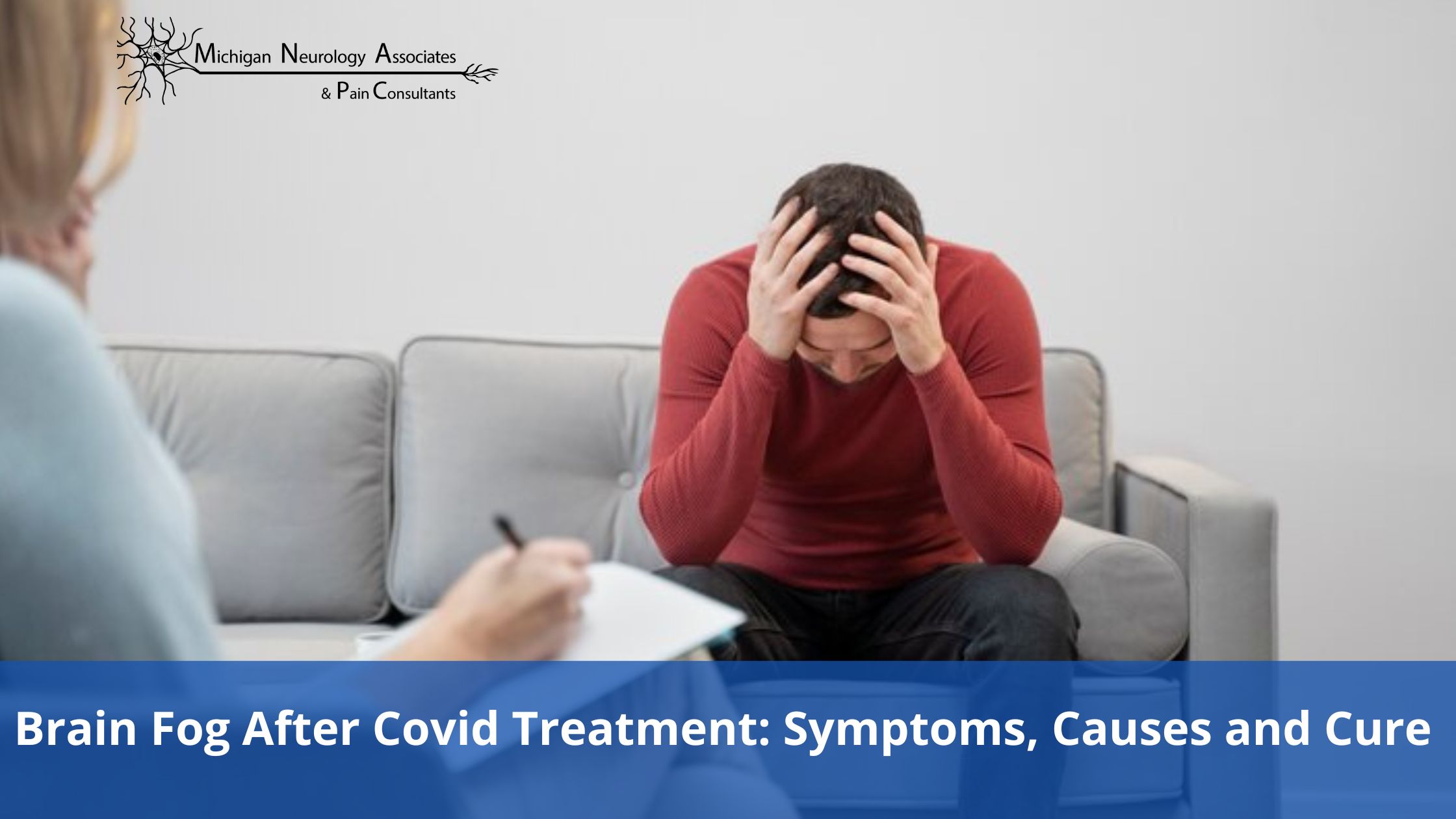Did you or your loved ones contract COVID recently? Are they showing symptoms like sluggish thinking, problems concentrating, poor memory, or amnesia? Brain Fog is a prevalent post-COVID condition that can affect long after the initial infection has settled. These signs can show after recovery and cause post-COVID cognitive impairment.
Learning about brain fog and its causes and symptoms can help us prevent and manage it. But first, we must understand post-COVID brain fog.
Understanding Post-COVID Brain Fog
Brain fog is a term used to describe a range of cognitive impairments that affect mental clarity. Individuals experiencing brain fog report symptoms such as forgetfulness, difficulty in problem-solving, lack of concentration, and slow brain functioning. Following a COVID-19 infection, these problems can persist, slowing our neurological response and making everyday activities more difficult. There are several causes that may lead to brain fog.
Causes of Post-COVID Brain Fog
Brain fog can result from neurological diseases, stress, a hectic lifestyle, or chronic diseases. In this case, COVID-19 causes inflammation of neurons, impacting our neurobiological system. Some of the causes that lead to brain fog after COVID treatment are:
- Inactive virus in the tissue reservoir: The SARS-CoV-2 virus can remain idle in the cells and become active when the body contracts other infections.
- Inflammation of the neurons: Neuroinflammation may weaken the immune system and cause cognitive challenges like forgetfulness and lack of attention.
- Mitochondrial dysfunction: The mitochondria are the power generators in human cells. COVID-19 affects them, slowing down bodily functions.
- The immune response is affected: Long-haul COVID-19 may affect your immune system, making the body more susceptible to diseases and brain fog.
- Psychological changes during COVID-19: The patient may incur mood disorders, anxiety, low BP, and depression. All of these lead to brain fog.
Now that we know about the causes of brain fog let's examine the signs and symptoms that may indicate it.
Symptoms of Post-COVID Brain Fog
Brain fog symptoms vary from person to person. As per a report, about 35.4% of survivors showed post-COVID neurological symptoms, which include headaches, memory problems, and sleep disruptions. However, Some common ones are:
- Difficulty paying attention: Brain fog leads to cognitive impairment, which can cause problems concentrating, understanding details, and paying attention.
- Memory issues: COVID-19 directly affects our neurons, leading to forgetfulness and difficulty remembering things.
- Fatigue and lethargy: Tiredness in muscles and mitochondrial dysfunction lead to loss of energy and fatigue in patients.
- Confusion and fuzzy thinking: SARS-CoV-2 can cause an inflammatory immune response, leading to confusion and delirium.
- Headaches and sleep disorders: Brain fog may cause severe headaches and hypersomnia.
Some of the symptoms of brain fog may coincide with pre-existing conditions like amnesia and dementia. Thus, it is necessary to diagnose the signs of post-COVID cognitive impairment.
How to Diagnose COVID-19 Neurological Symptoms
Diagnosing post-COVID brain fog involves a thorough medical evaluation, including neurological assessments and cognitive tests. Some of these can be:
- Cognitive assessments: MoCA (Montreal Cognitive Assessment) is a test to detect cognitive impairment and brain fog after COVID-19 treatment. However, the test results may vary.
- Neurological assessments: COVID brain fog treatment should include a complete neurological evaluation and psychometric test to understand a patient's psychology post-COVID better.
- MRI and CT scans: Medical imaging through MRI and CT scans can help doctors determine the changes in brain patterns to detect and treat brain fog symptoms promptly.
It is essential to use these tools immediately after COVID-19, as an early diagnosis is the first step toward post-COVID brain fog treatment.
Post-COVID Brain Fog Treatment
Treating brain fog after COVID-19 involves a combination of cognitive rehabilitation, medication, and lifestyle modifications such as regular exercise, a balanced diet, and adequate sleep. Some options are:
- A Healthier lifestyle: Have a balanced meal and drink enough water. A Mediterranean diet may help reduce the long-term effects of COVID-19.
- Regular exercise: Combine cardio and stability workouts with protein-rich meals to strengthen your brain and improve your cognitive abilities.
- Medicines to alleviate brain fog symptoms: Over-the-counter medicines and drugs may improve memory, concentration, and multi-tasking abilities.
- Cognitive rehabilitation therapy is a pre-planned program that includes a team of board-certified specialists to assist a patient recovering from post-COVID cognitive impairment. It can be implemented according to your needs.
COVID-19 can be a complex disease. Preventing any side effects and staying alert even after full recovery is essential.
Preventive Measures of Brain Fog
Following prevention measures can significantly improve one's post-COVID issues and help the patient live a fuller and healthier life. One should follow these tips to avoid brain fog after COVID treatment:
- Smoking and drinking: Alcohol consumption may harm your immune system. Smoking further affects your lungs and can cause long-term cases.
- An active lifestyle: Regular workout and light exercise will strengthen your immunity and help fight symptoms like memory loss and short attention span.
- Engage in brain-stimulating activities: Spend an hour or two solving puzzles, playing memory games, and reading. This will train your brain to be active and alert.
- Prioritize rest and relaxation: Maintaining a fixed sleeping schedule and taking enough rest will help you recover faster and keep your brain from overheating.
Early Diagnosis and Lifestyle Changes for Treating Brain Fog
Do you know an early diagnosis and lifestyle changes can eliminate Brain fog after COVID treatment? Early diagnosis can help you attain a healthier lifestyle by identifying the causes and symptoms. It plays a vital role in mitigating symptoms like reduced attention and lack of concentration, clarity, and energy. Professional intervention can also help you regain a quality of life even after COVID-19 treatment.
Consult Our Team for Brain Fog and Other Neurological Symptoms
At Michigan Neurology Associates & Pain Consultants, we have a team of neurology experts to provide the best treatment for all neuron-related concerns. Our experienced physicians and therapists provide personalized treatment plans for brain fog symptoms. Request a consultation to learn more.



